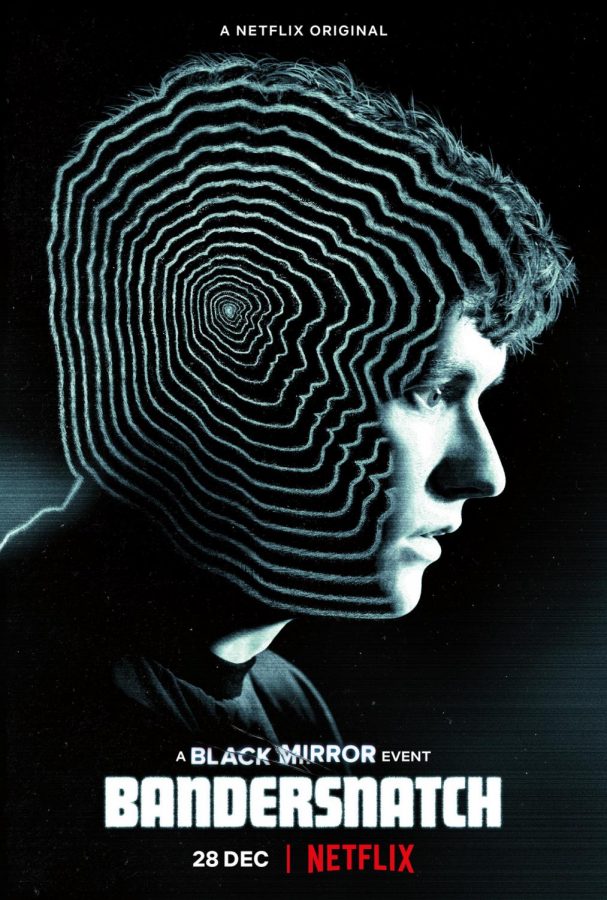‘Bandersnatch’ provides brilliant new twist for Netflix films
www.imdb.com
“Black Mirror” is a psychological thriller with the innovative idea to be interactive. It was released Dec. 28.
January 9, 2019
For the Netflix fanatic, “Black Mirror” is not a new name. Thousands have been enthralled by the show’s surprising and often disturbing view on the human mind’s interaction with innovative technology.
When Netflix announced a “Black Mirror” film, chaos erupted, but when the information was released that it would be an interactive film, confusion was the overwhelming emotion. Expectations were high and the anticipation for the release was through the roof.
Released on Dec. 28, “Bandersnatch” revolves around the efforts of young programmer Stefan Butler (Fionn Whitehead) to create his favorite choose-your-own-adventure novel into a video game in 1984.
At various points throughout the film, two options become available at the bottom of the screen to allow the viewers to decide what Butler will do. The choices gradually increase in intensity as the film progresses, starting at what music Butler will listen to and what cereal he will eat to whether or not he should kill his father for pressuring him into therapy for his potential mental illness.
The novel Butler is adapting leads him to question whether he is being controlled like the characters in the book and the video game he is creating are–which, of course, he is by the viewer.
The brilliance of this film is its ability to make you question your own free will like Butler questions his. It is a socially accepted idea that everyone has free will, but do they really? Are everyone’s choices predestined by some other force? In “Bandersnatch”, the viewer is that other force.
Depending on the choices the viewer takes, a variety of endings will be reached. The clever aspect of this movie is how the viewer is tricked into believing they also have free will. The choices the viewer makes do lead to different endings, but they all have more or less the same point. The viewer doesn’t have free will either.
This movie is a cutting-edge dive into the world of interactive films. Will there be more “Black Mirror” interactives? Will this idea diffuse into the “Black Mirror” television show episodes? Will other directors take this approach to their films?
The psychological thriller aspect of this film is exciting, no matter what choices the viewer makes. Whitehead’s acting is superb in every scene, especially when his character begins to become obsessed with free will.
As a film, “Bandersnatch” is good, but when the interactive aspect and the free will deceit is taken into account, the film is excellent.


